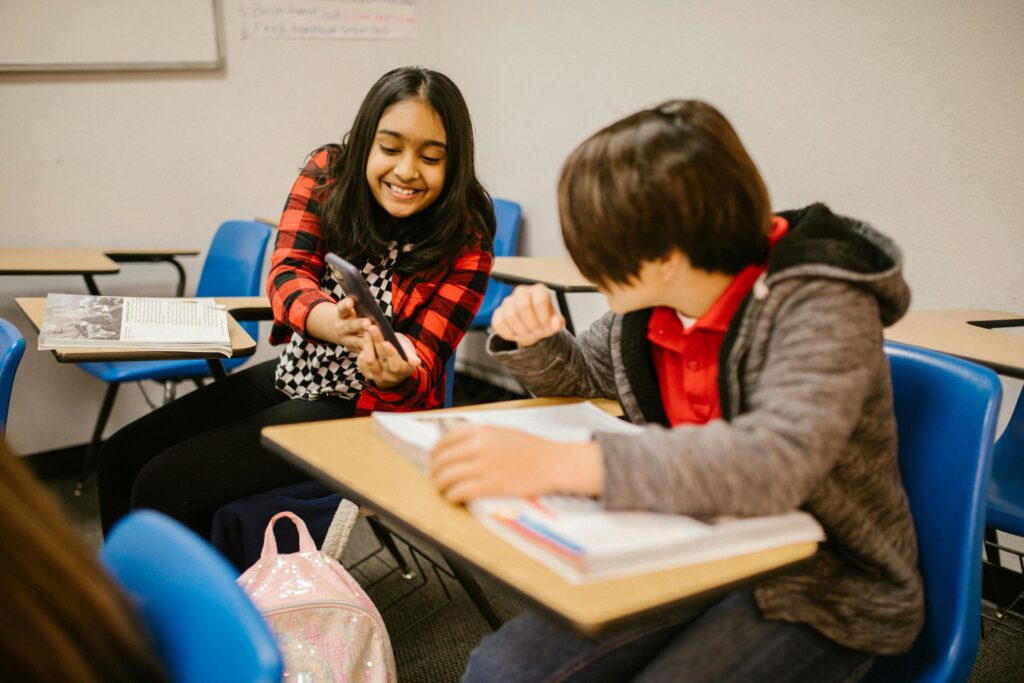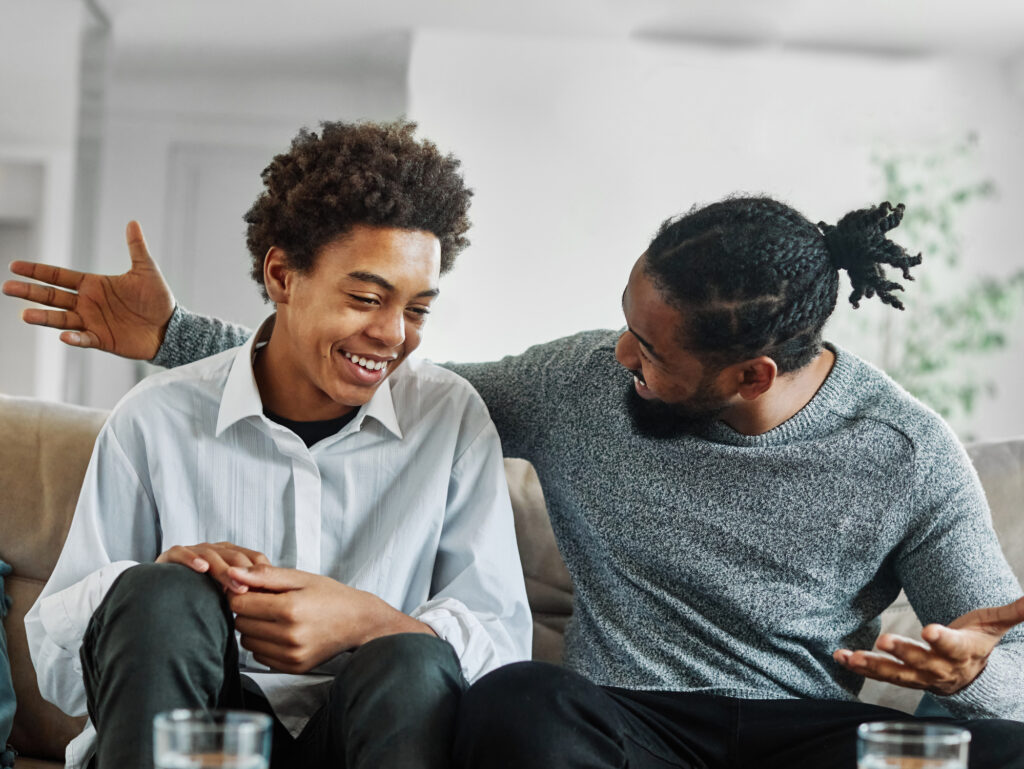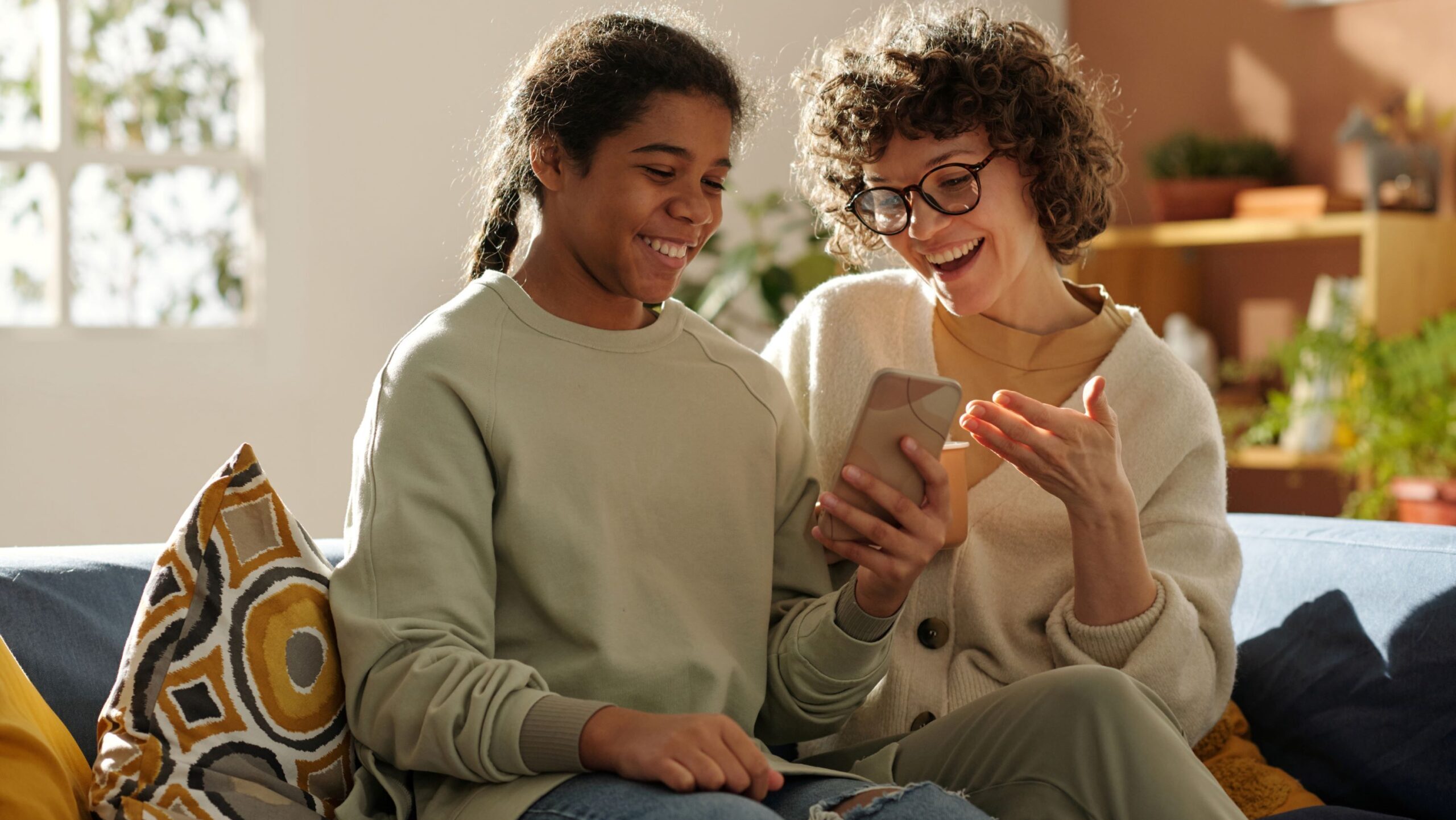Remember when we had ‘the talk’? Awkward, rushed, and (let’s be honest) often left us with more questions than answers. Today, things are more complicated for our kids. They’re growing up in a world of TikTok trends, secret Snapchats, mainstream pornography, and ChatGPT searches. And if we don’t guide them, the internet will. Big nope.
So, why not build an app? A modern, tech-forward way to give kids validated, evidence-based sex education. Not just the basics or scare tactics, but honest, age-appropriate conversations about bodies, consent, relationships, identity, and yes, sex.
But would parents use and trust a sex education app? That’s what Dr. Talia Rose Hubble, Luca Carbone, Ph.D., Dr. Laura Vandenbosch, Dr. Jaan Toelen, and David De Coninck, Ph.D., found out in their study “Exploring European Parents’ Attitudes Towards the Age Appropriateness of Digital Sexuality Education for Adolescents.” They asked what ages felt right for different sex ed topics and how family values, culture, and personal beliefs impacted those opinions.
It’s not about pushing our children to grow up faster. It’s about ensuring they grow up smarter. It’s about helping them become informed, safe, confident, and prepared for the futuristic sci-fi world they’re already living in.

Why the talk needs a tech upgrade
Let’s be real, comprehensive sexuality education (CSE) isn’t what it should be. It’s supposed to empower kids with knowledge about their bodies, relationships, identity, and emotional well-being. Not just ‘don’t have sex’, ‘don’t get pregnant’, or ‘don’t get STIs’ talks. According to the United Nations Educational, Scientific, and Cultural Organization (UNESCO), good sex ed covers everything from gender to culture to feelings.
But here’s the problem: schools’ kind of suck at sex ed—when there is any.
Globally, teens say sex education is often awkward, outdated, and frankly, embarrassing. Teachers aren’t always trained. Lessons can feel very heteronormative and ignore diversity. And let’s not even start with how inconsistent it is from school to school, state to state, or country to country.
Enter digital learning.
Imagine your kids getting accurate, inclusive information from a trusted app. One, they can access privately, at home, or school, whenever they’re ready. Tools that could deliver “pre-approved, accurate and sensitive information in a confidential manner” and even let students “tailor their learning” to what’s relevant to them.
This is where we need you, the parents.
Schools and experts might design the best app in the world, but if parents aren’t on board, it’s not happening. Research shows that when parents are involved, kids actually better learn about sexual health. But there’s also fear—worries about what kids might see or losing control over these potentially sensitive conversations.
“Whilst the existence of school sexuality education programs should not depend on parents, parental lobbying may negatively influence decisions regarding school CSE.” (Dr. Talia Rose Hubble, et al)
Basically, parents can either be the biggest supporters or the biggest blockers of general sex ed, let alone digital sex education.
What do parents think about sex education apps?
The research team wanted to know:
- When do parents think it’s okay for their kids to access different topics on a CSE app?
- What factors (like culture, religion, education) impact those opinions?
They aim to help educators and app developers create something parents will support because no one wants a great app that sits unused when parents hit the brakes.
The researchers surveyed 1,500 parents from Belgium, the United Kingdom, and Italy. Three countries with very different opinions when it comes to sex ed. These parents of kids aged 9 to 18 came from mixed backgrounds. It was done through an anonymous online survey. They were shown a mock-up of a potential comprehensive sex education app and asked what “age group should the app unlock content on” topics such as “the different types of penetrative sexual activity” and “the anatomy of the reproductive system.”

Designing sex education tools parents can trust
Let’s start with the hesitations. Parents weren’t ready to send a full, comprehensive sex education curriculum to their kids’ smartphones immediately. While most were comfortable with young adolescents (ages 9-12) learning about basic topics like body anatomy, they preferred to delay subjects, such as sexual activity, until much later.
And cultural differences were present. Belgian parents tend to favor younger access ages, while Italian parents are more conservative, preferring to postpone exposure. UK parents generally fall in between. Beyond geography, individual values play an important role. Higher religious backgrounds, lower education levels, and conservative views about sexuality were all linked to parents preferring older ages or even opting out entirely.
Another interesting finding was that parents who were unsure about their kid’s gender or sexual identity tend to delay digital sex education further, possibly reflecting discomfort or uncertainty.
Despite reservations, there was significant support
Overall, parents favor an age-appropriate, phase approach—echoing what experts recommended in traditional classrooms. It’s the concept of a “spiral curriculum”, where topics build gradually over time.
Those with more “liberal sociosexual attitudes” and higher education were notably more open to earlier access. These parents appear to recognize that informed, guided learning is far better than leaving kids to navigate misinformation online (or unsupervised information provided by systems like ChatGPT).
And parents who acknowledge or embrace various genders and sexual identities in their children were more supportive of inclusive education at younger ages. This could reflect their openness and desire to equip their children with the resources to navigate a society that isn’t always the best at accepting non-traditional lifestyles.
What does it all mean for digital sex education?
According to the authors, these findings “should enable policymakers and educators to understand parental concerns better and identify parent groups most resistant to digital CSE.”
The biggie? Developers and educators must engage parents, not replace them.
Parents need to feel like part of the process. Not just the ones giving permission, but real partners in the design and implementation. The researcher team emphasizes “transparent, sensitive, and collaborative communication” between parents and educators.
For the parents who are unsure about digital sex education, we need more information from them. The researchers recommend qualitative studies, interviews, focus groups, and stories that explore why some parents hesitate and what could change their thinking. We don’t want to pressure them; we want to understand their reasons and alleviate their concerns.
And why not include a parent-facing version of the app? Something that helps them understand the content (maybe even learn a bit themselves). As Dr. Hubble and colleagues put it, this could help parents “learn from a trusted resource and improve their self-efficacy regarding parent-child sex communication.”
In the end, conversations about sex and relationships have moved to screens. Kids are already searching for these answers online, and technology won’t wait for us to get comfortable with the talk. If built right, a sex education app might be the best partner we never knew we needed in our parenting lives.




